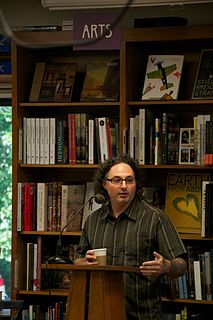A Quote by Lukasz Fabianski
I have the idea that when you put yourself through hard, detailed training, and you put a lot of attention into all the little details - the analysis of the opposition, the movement and understanding of the game, the way your opponent plays - then you shouldn't be afraid of making mistakes.
Related Quotes
Everyone is going to be afraid sometimes. Then you ask yourself, "What am I really afraid of?" Then you can address it, because there's nothing to be afraid of. It helps a lot when you just face it and put it in perspective. It gives you that courage to fight through it. As an athlete, you can't be afraid to make a mistake.
Before you even consider making a value bet, try to determine if the bet will have any value at all. Attempt to put your opponent on a hand that he'd likely call a bet with on the river. To do this, you'll have to mentally play back the details of the hand. Think about your opponent's playing tendencies.
I like making series, for a couple reasons. One, the repetition of routine is very healthy because I can get a little crazy; I want to be making things all the time. And if I publish something every week, I don't have to put every idea I have into one piece. It's more like, here's one idea: execute it, see it through, think about it, do it the best you can. And then there are going to be ten more ideas that come while you're making that, because creativity works that way.
I won't look it in the eye. As soon as I do, I get scared. You gotta walk the plank at some point, but at first you gotta put blinders on or you'll overthink things. I think it's dangerous, by the way, to do a lot of talks about your art, to do so much talking and so little making. You get the wrong idea about yourself.
My plan to put Social Security in an ironclad lockbox has gotten a lot of attention recently, and I'm glad about that. But I'm afraid that it's overshadowing some vitally important proposals. For instance, I'll put Medicaid in a walk-in closet. I'll put the Community Reinvestment Act in a secured gym locker. I'll put NASA funding in a hermetically sealed Ziploc bag.
I was always interested in music, I felt it was time to do it, coming out of the punk scene [1979]. I thought it was ideal that anyone could just put together a group and make it work. Then, of course, it became a little more detailed after starting it and realizing that it was something serious, not just a one-off situation. I had to put a lot more into it. Also I did it to get a lot of things out of my system, things that had been put there while I was growing up in my family. A sort of exorcizing of demons.
Tennis can be a very frustrating sport. There is no way around the hard work. Embrace it. You have to put in the hours because there is always something you can improve. [Y]ou have to put in a lot of sacrifice and effort for sometimes little reward but you have to know that, if you put in the right effort, the reward will come.
The idea behind reinforcement learning is you don't necessarily know the actions you might take, so you explore the sequence of actions you should take by taking one that you think is a good idea and then observing how the world reacts. Like in a board game where you can react to how your opponent plays.
A lot of 'Shonen Jump' anime, you see a lot of battles, a lot of aggression, and it's very relatable to players. There's a hero, and he has to go through a lot of rough training, put his body through the unthinkable so that he can save the world or do his task. His or her challenge is saving the world; our challenge is winning the game.






































